Track Wheel Bearings - MPI Race Bearing Review (Superior to SKF X-tracker?)
So somewhere during my 16th and 17th track day I suffered the near catastrophic failure of an OEM wheel hub. Nothing about that was entirely surprising really, as the C5 Corvette OEM hubs are known to fail as you begin to progress to a more aggressive level with your track driving. Check out the picture below though where you can see just how thoroughly my wheel hubs failed!
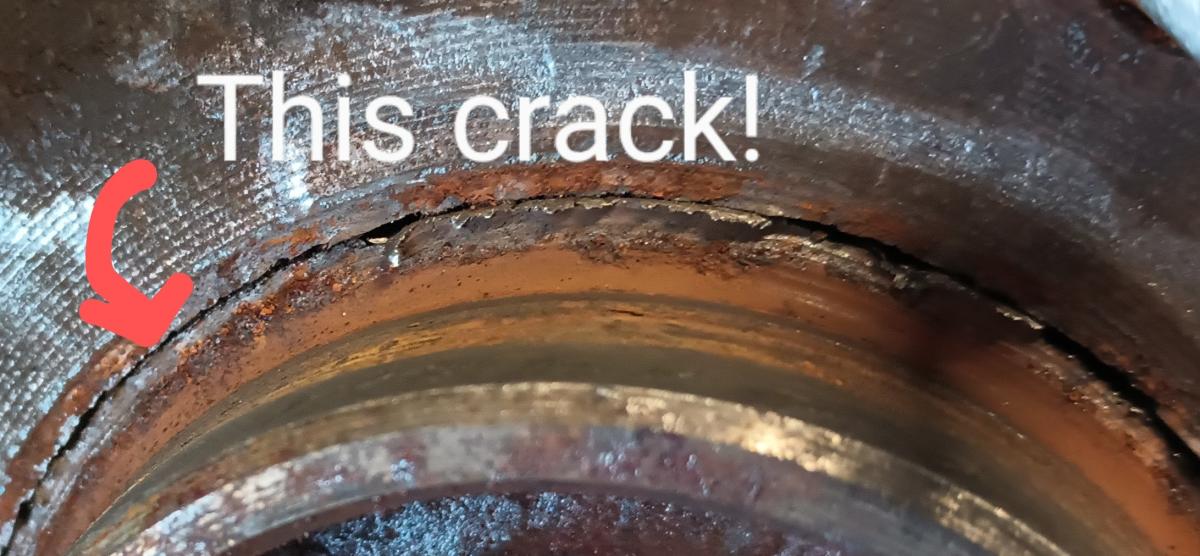
Consequently I was left needing to replace my wheel beargings, which got me wondering: "What is the best replacement for my wheel hubs?"
It should surprise no one if you've been reading my other articles that I'm a fan of high bang for buck options when it comes to this Corvette. I'm also trying to stick to the motto of "If you can't throw it off the side of the track and not care about it, you've got too much". That said, I also like the saying "There's no kill like overkill!" Consequently, I have to balance this all out to get the most robust solution I can for the price.
![]()
The accepted industry standard answer for the C5 Corvette is to go with the SKF Xtracker hubs. They are tested and proven to last a very long time. Infact, no expected life cycle has been stated by anyone with these and I personally could not find any documented failures of these. By all acounts this is a one and done solution for these. That also said, since COVID these tend to run about $1750 for a set of 4, and that's just the parts. Good luck keeping it under $3k if you want to pay someone to install these for you! All for a part that won't improve lap times or do anything sexy like that.
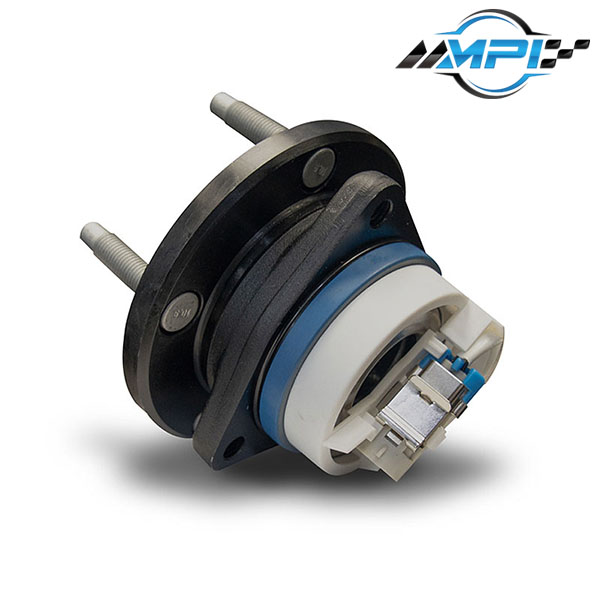
A few weeks prior to my wheel hub failure, a fellow shared a new alternative to the SKF Xtrackers, MPI Racing Performance 30 Spline Wheel Hub Assembly. At $250ea, these come in about $750 cheaper than the SKF trackers for a set of 4, or about 40% less. Unfortunately, these do not yet have all that much documentation on their longevity and thus adaptation is still a bit lacking.
I decided to give these a go and reached out to MPI to see about trying out their product. They were very kind and provided me a modest discount to try out these wheel bearings. I still paid a solid sum of my own money however, so I will be giving these an honest review!
How the MPI Compares to OEM, on the bench:

Right off the bat, you can see that the MPI is a notable stouter unit. The hub flange is significantly larger, and the thickness of the hub itself is notably improved.

The OEM wheel bering measured in at 12.01 mm of thickness.

The MPI wheel hub comes in at 13mm thickness, so approximately 8% thicker. Also, the MPI wheel studs also appear to be about an 1/8" longer than the OEM wheel hubs. A lot of folks get the SKF wheel hubs with ARP stud bolts on them and sometimes even go with extended bolts, but these come with the slightly longer bolts right from the getgo. Also of note is that these are the "bullnose" kind which makes threading on your lug nuts that much easier. I don't believe I'll need anything different as far as studs go on these wheel bearings, but if you're using wheel spacers for some strange reason, you just might?
Installation of the MPI Racing 30 Spline Wheel Hub Assembly:
So let me say right off the bat... I missed an opportunity when I was installing my Delrin bushings to install these! When doing the Delrin bushings you complete the entirety of the nescessary diassembly to reach the wheel bearings. I should have ponied up to do the job right then, but I figured eh... my wheel bearings have lasted and I know how to pull this all apart pretty good now... it should be all good. Nope. If you're doing bushings, do these or do the work twice.
As for a good instructional on the topic, I reviewed a few videos and tutorials on the matter, but found that "My Corvette Life" has a pretty decent one:
Some key differences I would recommnd you do differently than the video:
- Refer to this torque values sheet constantly and use a torque wrench for everything.
- It is missing values for the rear parking brake assembly AKA the parking brake actuator assembly. That value is 52 ft/lbs.
- He for some reason removes the upper control arms? You don't need to do this, at least with coilovers and with the car raised on a Quikjak 5000tl. I simply undo the nut on the upper ball joint, put my jack under the lower control arm and jack it up until I can remove the upper ball joint spindle from the control arm. WAY simpler to do this and saves you having to undo and then re-torque 4 more nuts.
- To remove the axle after following my step above, simply pull the spindle outwards and push the axle inwards. Then finagle it out of the hub. It was no problem for me to do on both sides of my C5 corvette both for this job and when I changed my bushings out.
- When using the harbor freight ball joint tool, it will not fit on your lower ball joints. You'll need to clearance a few bits of it to make room. Increase the depth of the lower "fork" by grinding out the opening. Remember to smooth this out, it will go near your ball joints. Then, grind down the corner of the lever where it contacts the fork to allow it to open just a bit further. These minor modifications will make the job easier.
- Don't bother making your stuff as pretty as he does, haha. It'll just get coated in brake dust again in no time.
Here's a few picture of how my install went
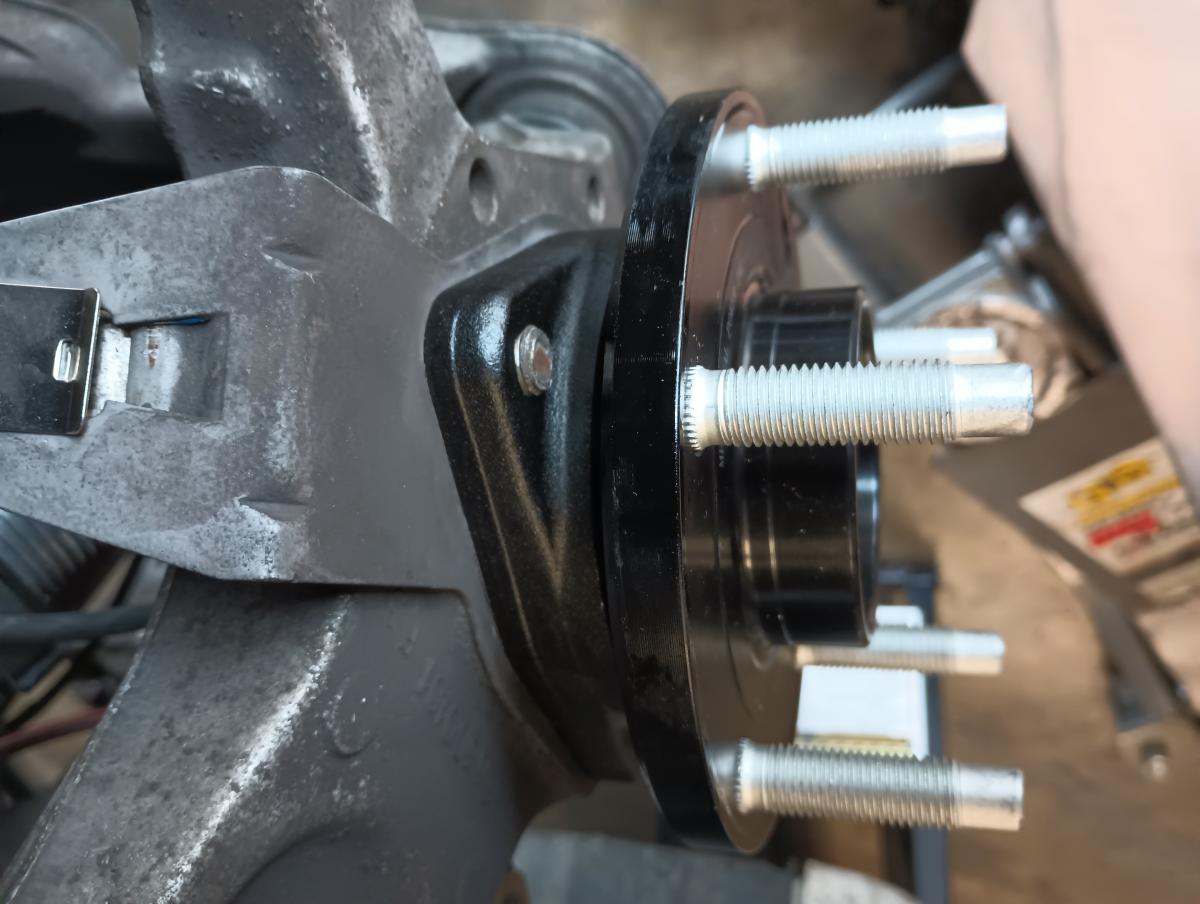

Everything about the install was really straight forward. The majority of the job is getting the spindle removed so as you can install the wheel hubs. With an impact gun though it's really not that much headache. I would say the biggest nuisance of the job for me was getting enough leverage to apply the correct torque value when reinstalling the wheel hubs bolts.
C5 Lower Ball Joint Boot Replacement
One thing I did mess up, was I finally tore a lower ball joint boot unfortunately. I don't have a good picture of the damaged one unfortunately. I was a bit ticked off thinking I now had to remove a lower control arm to go get a new ball joint pressed in to place, but a few forum posts mentioned that C4 lower boots work on the C5. I decided to give it a try for myself.

I picked the ball joint boots up from Summit Racing. They were made by Energy suspension and are part number 9.13127G
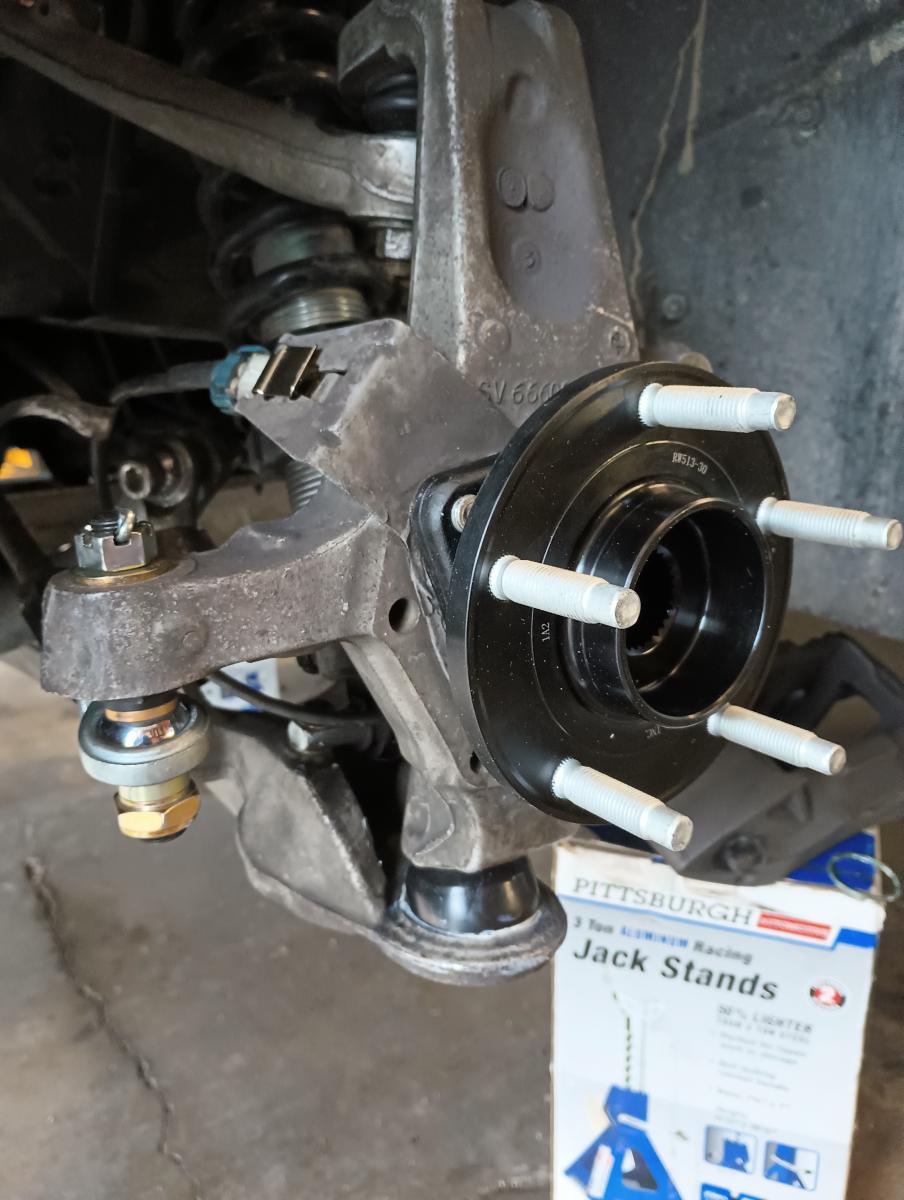
Here you can see the ball joint boot in place. The fit is admittedly mediocre and a bit unsecure with the lower and upper ball joints disconnected. However, with both ther upper and lower in place and the boot pressed into place it appears to form a pretty good seal. I was concenred I was just asking for trouble with this, but then I posted in a C5 group what others thought, and two individuals posted up that they'd done the exact same thing. For both the ball joint never failed nor presented them issues. One individual had done multiple track days and Auto-X for three years, the other "ran it on their race car for years" but not a lot more specifics beyond that. They apprently sold said race car with this still in place and it continues to hold up. That seems reasonable enough then for me to just send it as is!
Initial Track testing with the MPI Wheel Bearings
So my first track day out after replacing the wheel bearing was my 18th track day, which occurred at Streets of Willow clockwise. It was a very hot day that was quite demanding on tires and resulted in a lot of slides from various folks. Despite that high temperatures though, I was able to shave about a half second of my previous best time at the track, and put down a ton of pretty similar lap times out there. While some may point to the track not being a terribly high speed track, I encourage them to turn similar times on this particular track. Doing so is a massive workout to a C5 corvette as it requires significant rotation of the car, and more so doing it on endurance 200tw tires is a task in itself. Then putting down a full session of laps not all that far off the pace... yeah you get the picture.
I did run into one small headache that is worth noting with the MPI Wheel Bearings, but let me preface this with saying it's very minor and I truly can't fault them for this issue. On the MPI Wheel Bearings, the slightly shorter wheel speed sensor line resulted in a slightly different angle for the connection to the C5 electronics. The wiring is in turn connected to the parking brake line, and this issue that started with a minor angle difference of the ABS connector resulted in these lines being pulled very very close to the inner part of the wheel. That reduced clearance in turn caused me quite the scare as I was starting to get a strange noise during hard cornering to the left. My mind of course went to a differential issue, but when I jacked up the car and looked around, it was there and clear as day: The lines were making contact with the wheel weights. For what it's worth though... I have no idea if SKF Xtrackers would also have the same issue.

A few zip ties resolved the issue, and I was back to setting new personal bests out there! The wheel bearings performed great and without any issue, just as they should on a first outing. They are very clearly capable of doing what is asked of them. The question however remains...
Long term results with the SKF Bearings
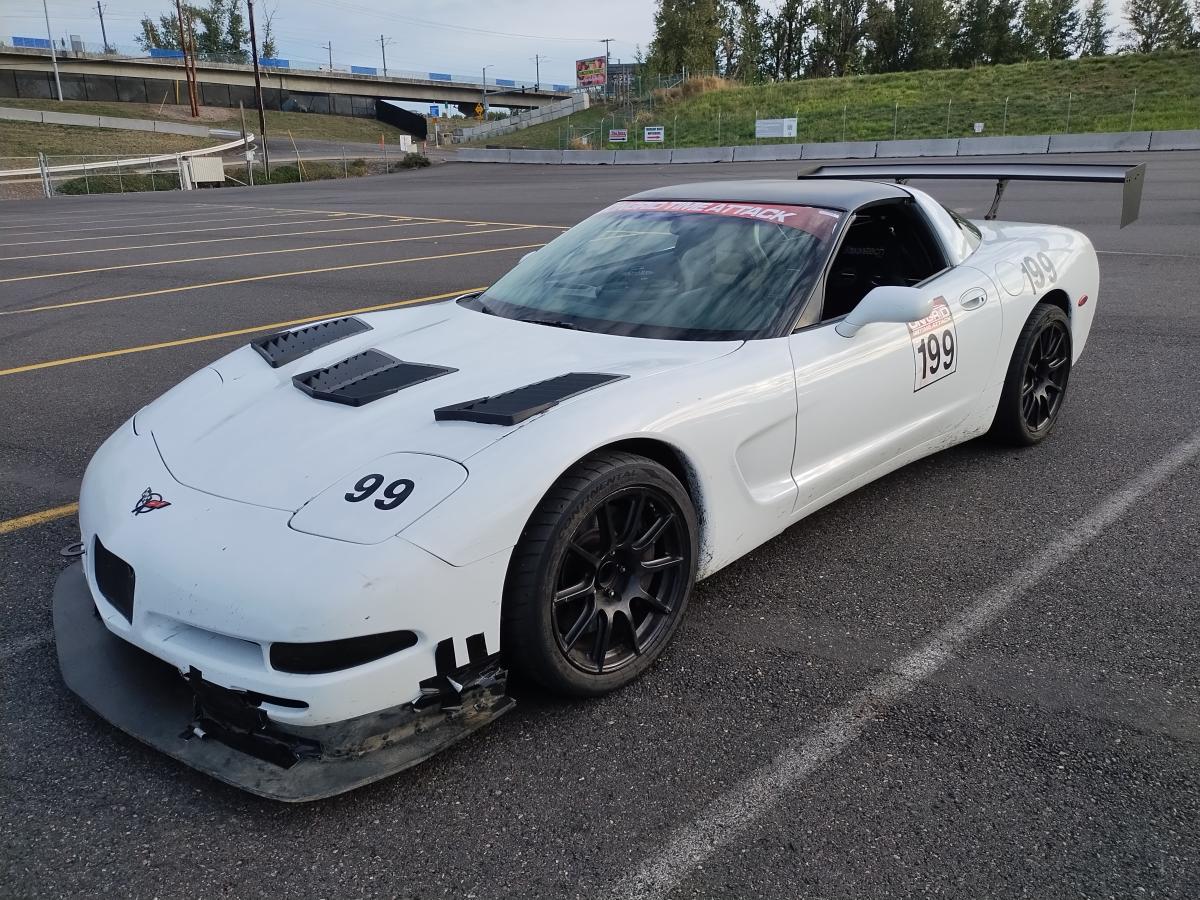
The wheel bearings were put on my car for my 18th Track event. At the time of me updating this article, I have just wrapped up my 41st event. At this point I now have over a full season and 23 events on the MPI bearings. I can safely speak as to how they hold up.
The rear wheel bearings have held up without any issue or play this entire time and I can safely say they are very much a safe bet! If nothing else if you want to save money you can get MPI in the rear, and SKF up front.
The front wheel bearings story is a bit more nuanced.
By the end of my 26th track day (9 events), the MPI wheel bearings had developed notable play up front that I measured and quantified to MPI. I reached out to them, and... they told me no one else has this problem, it's likely me. That said, they sent me replacement wheel bearings and requested the old wheel bearings for testing. I replaced the old wheel bearings, checking first that all were torqued as expected, and then shipped the old ones back.
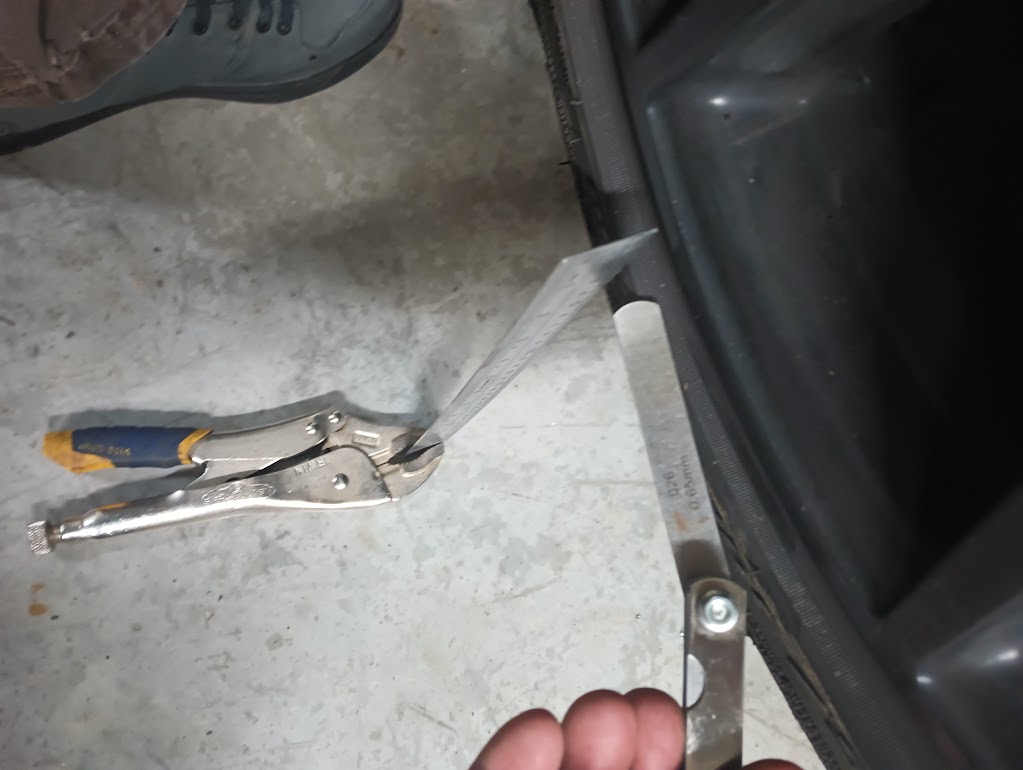
In the above pictre you can see how I tried to quantify the bearing movement. I attached a straight edge to some pliers and put it against the tire, and then grabbed the wheel and moved it back and fourth vertically. I then measured just how much the straight edge had moved, and the gap was 0.65mm. That may not sound like much, but it's a decent amount of movement, and keep in mind that is just one side of the wheel movement, the total movement is assumedly double that, being 1.3mm of total movement.
During the process of discussing the front bearings, I tried to inquire what happened... and got the response of "No one else has this issue, it's something with your setup". So I posted up asking for folks who were tracking testing these, found one person, and in their case the front bearings had puked all of the grease out of them, and they had chosen to discontinue use. So... it could be me, but it's also nobody else.
It's worth noting my alignment values were pretty safe and tested, I torque everything and confirmed torque on dissasembly and reassembly... so I'm really not sure what I could have done.
The replacement set of MPI wheel bearings was replaced before my 27th track day. I've been on them for 14 events since that time, including 5 time attack events where I flogged the car as hard as it could go and podiumed 4 of the five events. They bearings began to develop the slightest hint of bearing play around my 6th or 7th event, but nowhere near the same as before. I've continued to flog on these bearings for the remainder of the season, just to see if they'd get worse and the bearing play has remained the same barely noticable amount of play.
The only difference I can conceive between the first and second setup for my tires is I switched to Continental Extreme Contact Force's, which are noticably more grippy up front and last longer. I've also added aero which has increased grip, but that in theory should increase wear as I am now able to handle higher corner speeds and G-forces, though I do wonder if rotating the car puts more lateral stress on the wheel bearings than heavy cornering.
My Overall reccomendation with the MPI Wheel bearings
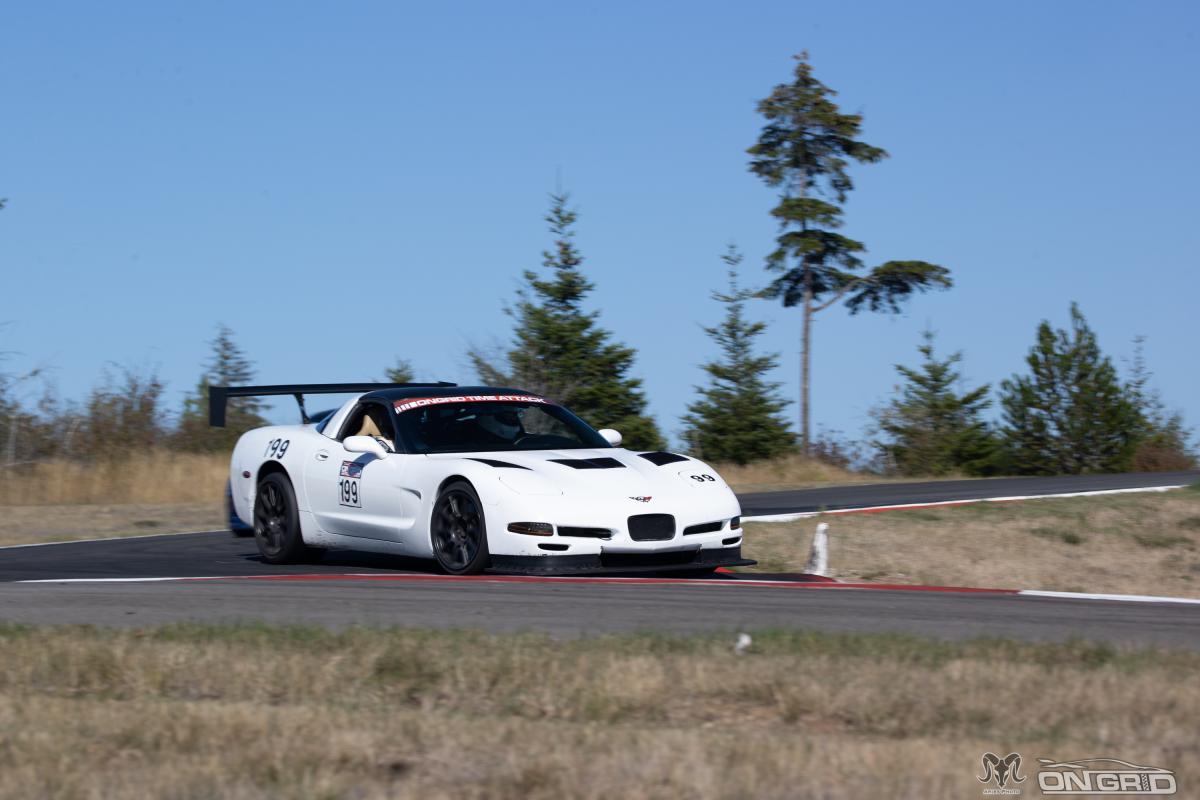
I am of the informed and tested opinion at this point that mounting these wheel bearings on the rear of the car is a no brainer. You'll save a couple hundred dollars over SKF wheel bearings and they do indeed hold up. That said, this is with a relatively modest horsepower LS1, running endurance style 200tw tires. Your mileage may vary if you are running an LS3 swapped car, a supercharged car, running slicks or hoosiers, or drifting.
Up front things are a bit more nuanced:
- If you are a street driver, get these it's a no brainer!
- Street and some track, it's a pretty darn safe bet to get these!
- Track driver mainly there for seat time on endurance 200tw tires, you can run these, but might do better with SKF
- Track driver doing time attack casually? It's starting to get a bit more iffy.
- Track driver doing time attack and running competitive tires like A052s, hoosiers, etc? I can't say for certain how these will treat you, YET!
- Racer? Not tested enough to be a safe bet, get the standard SKF
